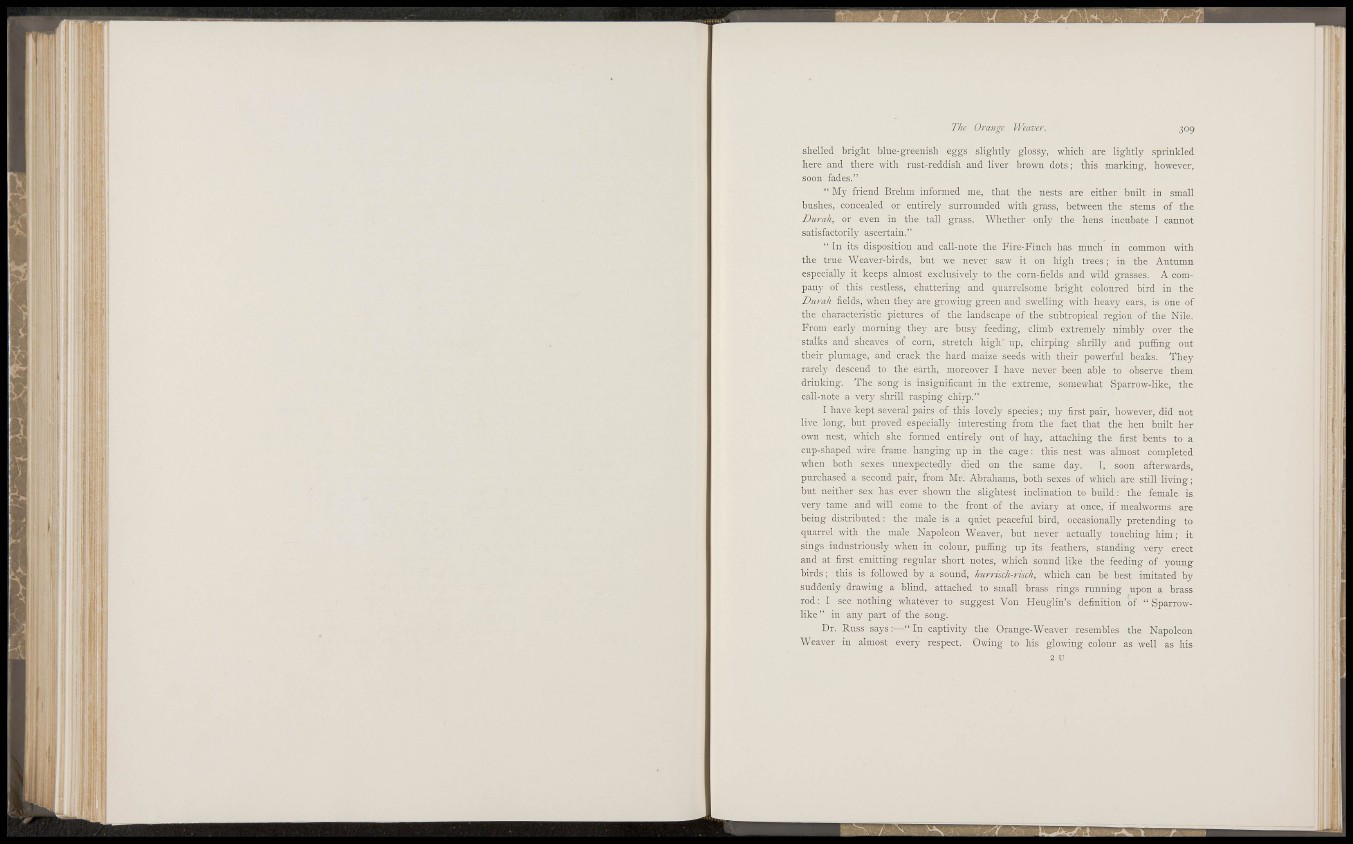
r i I ^ i I ii
shelled bright blue-greenish eggs slightly glossy, which are lightly sprinkled
here and there with rust-reddish and liver brown dots; this marking, however,
soon fades."
" My friend Brehru informed me, that the nests are either built in small
bushes, concealed or entirely surrounded with grass, between the stems of the
Durah, or even in the tall grass. Whether onty the hens incubate I cannot
satisfactorily ascertain."
" In its disposition and call-note the Fire-Finch has much in common with
the true Weaver-birds, but we never saw it on high trees ; in the Autumn
especially it keeps almost exclusively to the corn-fields and wild grasses. A company
of this restless, chattering and quarrelsome bright coloured bird in the
Diirah fields, when thej- are growing green and swelling with heavy ears, is one of
the characteristic pictures of the landscape of the subtropical region of the Nile.
From early morning they are busy feeding, climb extremely nimbly over the
stalks and sheaves of corn, stretch high' up, chirping shrilly and puffing out
their plumage, and crack the hard maize seeds with their powerful beaks. They
rarely descend to the earth, moreover I have never been able to observe them
drinking. The song is insignificant in the extreme, somewhat Sparrow-like, the
call-note a ver}' shrill rasping chirp."
I have kept several pairs of this lovely species; my first pair, however, did not
live long, but proved especially interesting from the fact that the hen built her
own nest, which she formed entirely out of hay, attaching the first bents to a
cup-shaped wire frame hanging up in the cage : this nest was almost completed
when both sexes unexpectedly died on the same day. I, soon afterwards,
purchased a second pair, from Mr. Abrahams, both sexes of which are still living;
but neither sex has ever shown the slightest inclination to build : the female is
very tame and will come to the front of the aviary at once, if mealworms are
being distributed: the male is a quiet peaceful bird, occasionally pretending to
quarrel with the male Napoleon Weaver, but never actually touching him; it
sings industriously when in colour, puffing up its feathers, standing very erect
and at first emitting regular short notes, which sound like the feeding of young
birds; this is followed by a sound, hurrisch-ruch, which can be best imitated by
suddenly drawing a blind, attached to small brass rings running upon a brass
rod: I see nothing whatever to suggest Von Heuglin's definition of " Sparrowl
i k e " in any part of the song.
Dr. Russ says:—"In captivity the Orange-Weaver resembles the Napoleon
Weaver in almost every respect. Owing to his glowing colour as well as his
i l
:f
' i
i f
i ri
I : ;
'* , •u!
\l •